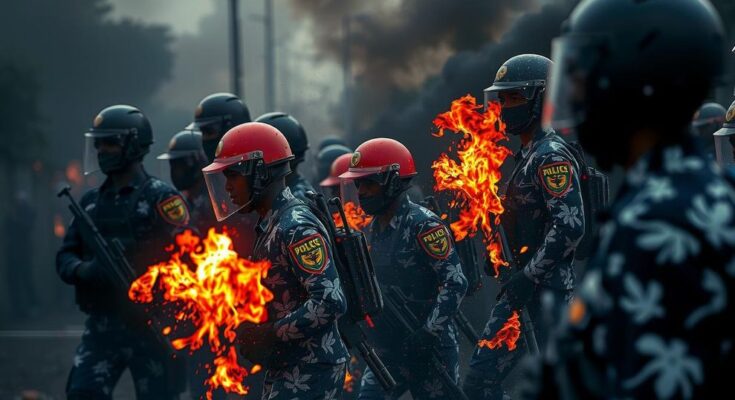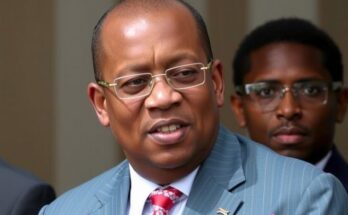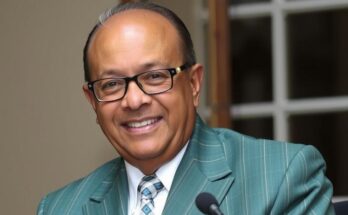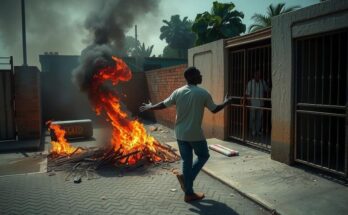Mozambique’s police deployed tear gas against opposition leader Venancio Mondlane during his media briefing, amidst escalating post-election tensions following the murder of two opposition figures. Mondlane had urged a nationwide work boycott in protest against alleged election fraud. The ruling Frelimo party, facing scrutiny for past electoral misconduct, is poised to maintain its long-standing dominance in Mozambican politics as final election results approach.
Authorities in Mozambique resorted to tear gas to disperse a crowd surrounding Venancio Mondlane, the leading opposition figure, while he addressed reporters in the capital, Maputo. This incident unfolded against a backdrop of escalating tensions following a contentious presidential election on October 9, during which two notable opposition figures were murdered. As Mondlane spoke to the media, he was interrupted by police action, compelling him and his supporters to seek refuge from the onslaught of gas canisters, with one journalist reportedly sustaining injuries. In the lead-up to the confrontation, Mondlane had orchestrated a nationwide call to action, urging citizens to boycott their workplaces in protest against what he and several political factions have denounced as fraudulent election practices. In particular, he had intended to gather at the site where the aforementioned killings occurred. Earlier confrontations between law enforcement and protestors resulted in the deployment of tear gas, an indication of the heightened sense of unrest in the capital. The current election cycle appears poised to allow the ruling Front for the Liberation of Mozambique party (Frelimo) to extend its grip on power, which has persisted since the nation gained independence from Portugal in 1975. Preliminary results reveal candidate Daniel Chapo from Frelimo leading Mondlane, who represents the newly formed Podesa opposition party, although final election results are pending. The assassinations that precipitated these events have sparked concerns over political motivations, as the late Elvino Dias, Mondlane’s lawyer, was actively involved in efforts to contest the election outcomes. International bodies, including the European Union and the United Nations, have expressed dismay over these developments, calling for thorough investigations to ensure accountability. Mondlane further recounted his experience with law enforcement, stating that they attempted to restrict his movements, indicating a systemic effort to stifle dissent ahead of planned demonstrations. He remarked, “The whole of last night, police cars were at my doorstep… I was trying to find other ways to leave the house without being noticed. I did.”
The political landscape in Mozambique has been fraught with tension, particularly following the recent presidential election that many have criticized as marred by corruption and irregularities. Frelimo, the long-standing ruling party, has faced accusations of electoral malfeasance, which they have consistently denied. Previous elections have been plagued with violence and political assassinations, raising concerns over the safety of opposition members. The murders of opposition figures, which took place shortly before these protests, have intensified fears regarding political repression and the government’s approach to dissent. The aftermath of the election results, expected soon, holds significant implications for Mozambique’s governance and the strength of opposition parties, as well as international scrutiny on the country’s electoral integrity and human rights record.
In conclusion, the recent use of tear gas against Venancio Mondlane and his supporters illustrates the deepening political turmoil in Mozambique following an election characterized by accusations of fraud and violence. The assassination of key opposition figures has exacerbated tensions, drawing international condemnation and calls for accountability. As the nation awaits final election results, the political climate remains precarious, fueled by public outrage and governmental repression. The events signal a critical moment for Mozambique’s democracy and the safeguarding of fundamental rights and freedoms.
Original Source: apnews.com




